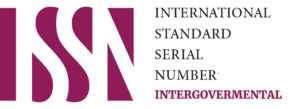ABSTRACT
The relationship between culture and corruption in Nigeria, a developing country, examines the impact of religion, traditional practices, and political corruption in Nigeria. There has been a huge struggle with political corruption thereby impacting the development and economic stability of Nigeria.
Despite the country’s richness in natural resources, human capital, corruption has plunged further into the system. This can be traced back to the era of the the civil rule; a period between when Nigeria gained independence and when the first military coup d’etat took place.
This paper explores the intrinsic link between culture and corruption in Nigeria, with a specific focus on the interplay of religion and politics. Owing to the diverse cultural landscape, diversity, and religious beliefs, it has a significant implication for the prevelance and perception of corruption within the Nation.
This paper further undertakes to delve into the historical instances of corruption and analyze the influence of culture and religious beliefs.
The findings from this study provides valuable insights into the complex dynamics between culture, religion and corruption in Nigeria, offering a foundation for informed policy interventions and strategies to foster a more transparent and accountable society. Moreover, the intertwining of religion and culture further influences attitudes towards corruption, as religious beliefs often shape individuals moral compass and ethical decision-making.
Introduction
Political corruption, a persistent issue in politically organized human societies, affects rulers and holders of public offices in all societies, regardless of wealth, development level, or historical era.[1] [2]It varies in prevalence and impact across different societies, with Nigeria and other post-colonial African regions being particularly affected.[3]
Despite Nigeria’s abundant resources and initial promise as the “Giant of Africa” and “Elephant of the Black Race” after gaining independence, political corruption has emerged as the most significant challenge hindering government functionality, national integration, and development.[4] This type of corruption has contributed to declining faith in Nigeria’s democratic rule, especially during periods like 1960-1966 and late 1998-2017, leading to military interventions and disruptions of democratic processes.[5]
This major paper aims to explore the causes and consequences of political corruption in Nigeria, particularly during military rule, and its persistence despite the reintroduction of civil rule since 1999. Additionally, the article examines the possible connections between political corruption and the prevailing gift culture and other traditional practices in the country. The influence of deep religiosity among adherents of Christianity, and Islam on the high rate of political corruption involving supposedly religious individuals is also a focus of this research.
Moreover, the article investigates how traditional cultural practices and religious activities have exacerbated corruption in Nigeria’s political sphere. It delves into the culture of impunity among public office holders during Nigeria’s democratic period and military interventions, which have weakened public institutions and regulatory agencies’ ability to combat corruption.
The study relies on secondary data sources and employs an interpretative approach for analysis. It covers the definition of political corruption, its historical context, structural biases, and the role of culture and religion in fostering corruption within the government. Finally, the article concludes with its findings and insights by answering the question: Is there a relationship between culture and corruption in Nigeria?
- POLITICAL CORRUPTION
Political corruption involves rulers, both selected and elected, as well as other public officials responsible for governing a state or political community. It encompasses any unlawful, unethical, or unauthorized exploitation of one’s official position for personal or group gain.[6] [7] The term “political” is added to differentiate it from other forms of corruption. Here, “political” refers to public office holders, official goods and services, and the agencies and institutions responsible for managing public affairs and goods. Political corruption involves corrupt acts committed against the state or its agencies by individuals holding official positions with the aim of personal profit.[8] [9]
The primary victims of political corruption are the state and the overall body politic. Acts of corruption against private organizations or NGOs, while still punishable, do not fall under political corruption by this definition. For example, misappropriation of funds and materials meant for Nigeria’s internally displaced persons (IDPs) or diversion of date fruits intended for Nigerian Muslims during the 2017 Ramadan fast are instances of corruption but not political corruption.
In essence, political corruption encompasses various forms of corruption like graft, bribery, nepotism, kickbacks, clientelism, favouritism, misappropriation, and embezzlement, among others, as long as they involve actions against the state or government. It includes activities such as illegally transferring public funds to private accounts, customs officials reducing customs duties on imported items without authorization, awarding contracts in exchange for kickbacks, employing relatives over better-qualified candidates, manipulating the justice system in favour of bribers, and other similar actions.[10]
In Nigeria, the official working definition of corruption, as provided by the Independent Corrupt Practices and Allied Offences Commission (ICPC) anti-corruption law, encompasses bribery, fraudulent acquisition of property, receipt of fraudulent property, pecuniary advantage, gratification, influence peddling, insincerity, laziness, and tardiness. Additionally, it includes the failure to report cases of inducement to the appropriate authorities.[11] Making the failure to report cases of inducement an offense underscores the severity of the corruption problem and highlights the widespread tolerance of corruption among the populace, which became more pronounced during the military rule in Nigeria. This tolerance partly reflects the erosion of age-long communitarian values that prioritized public interests in various traditional societies and cultural groups in Nigeria
2) political corruption in Nigeria
The plotters of the country’s first military coup in January 1966 highlighted corruption in public offices as a major reason for their actions. However, even during colonial rule, there were instances of official misconduct and misuse of privileges that constituted political corruption. The ‘British images of African Corruption’ depicted negative perceptions of African moral and mental standards since colonial times, and cases of corruption were evident in traditional institutions like the Sokoto Caliphate and Oyo Empire.[12] [13]
Despite the shortcomings of the pre-colonial socio-legal order in the face of colonial challenges, it formed the basis for the British indirect rule system. Prominent nationalists such as Herbert Macaulay and Dr. Nnamidi Azikiwe faced accusations of corruption, leading to punishment and reproach. Macaulay was imprisoned for misusing trust funds, preventing him from holding public office, while Azikiwe was reprimanded for alleged financial improprieties in his role as the premier of the Eastern region. Similar abuse of official positions was found at various lower levels, as evidenced in the 1954 Storey Report on the activities of the Lagos Town Council
The issue of corruption soon became a weapon for political attacks among nationalists, complicating efforts to address actual corruption cases spreading in Nigeria’s public life. The Foster-Sutton Tribunal of Enquiry and Coker Commission of Inquiry subjected Azikiwe and Chief Awolowo to celebrated trials and indictments, which were influenced by this politics of bitterness. Azikiwe was found guilty of corrupt enrichment through the diversion of funds from the African Continental Bank, and Awolowo faced similar charges regarding funds from the Western region-owned Cocoa Marketing Board.[14]
Nigeria’s First Republic collapsed due to a military coup in January 1966, triggered by various events such as the 1962 Action Group intra-party crisis, the 1962/1963 census crisis, the 1964 federal election crisis, the 1964/1965 Tiv rebellion, and the crisis-ridden 1965 Western region election, which escalated political tensions and hindered effective governance[15]. The coup plotters attributed corruption as a major cause behind the other nation-building problems during the post-independence era.[16] Although the coup failed, it led to the establishment of a military regime under Major General J.T.U. Aguiyi Ironsi, who was later killed in a counter coup in 1966, marking the beginning of a tumultuous period marked by sectionalism, nepotism, and negative tendencies that ultimately led to the civil war of 1967-1970.
After 13 years of military rule, Nigeria experienced a brief period of civilian rule known as the Second Republic in October 1979, but it also collapsed in December 1983 due to another military coup fuelled by allegations of large-scale corruption against public officials. The succeeding military regime under General Muhammadu Buhari didn’t face serious corruption accusations but was ousted in another coup, paving the way for General Ibrahim Badamasi Babangida as Nigeria’s first and only military president.
Under Babangida’s rule, corruption in Nigeria became more pronounced, and the “politics of settlement” involving political patronage and misuse of public resources to silence critics and opponents of bad policies became prevalent. Babangida annulled the June 1993 presidential election, leading to widespread violence and his eventual stepping aside, which resulted in an Interim National Government (ING) led by Chief Ernest Shonekan. However, corruption persisted when General Sani Abacha staged another military takeover in November 1993, leading to a period of grave corruption and atrocities by Abacha and other public officials.
Despite regulatory agencies such as the Code of Conduct Bureau, Code of Conduct Tribunal (CCT), ICPC, and Economic and Financial Crimes Commission (EFCC), there has been no significant reduction in political corruption during the Fourth Republic, which commenced in 1999. The frequency and magnitude of official misconducts, often without serious punishment for major offenders, indicate a chronic malaise of political corruption in Nigeria.[17] This raises questions about the reasons behind the persistent growth of political corruption in the country and whether Nigeria has a culture of political corruption.
Firstly, political corruption thrives in Nigeria because national or public interest often takes a backseat to other non-public loyalties and obligations. Ekeh’s ‘two publics’ theory, which attributes colonialism to the separation of the state from society in Nigeria, sheds light on this formulation. Contemporary cases, such as the investigation of Senate President Bukola Saraki at the CCT, demonstrate the enduring effects of this view in Nigeria. Ideological or emotional attachment to government institutions remains lacking, as depicted in Chinua Achebe’s novel, No Longer at Ease, where the government is seen as an “alien institution” to be exploited.[18]
Secondly, the extended family system in Nigeria and other parts of Africa contributes to the high incidence of political corruption. Individual public officials in Africa bear dual responsibilities for themselves and their family groups, leading to nepotism, clientelism, and patronage. In contrast, nuclear family systems in developed societies discourage such levels of nepotism and clientelism. The prevalence of patron-client networks is central to the ‘prebendal’ perspective on Nigerian politics and public affairs, as highlighted by Richard Joseph in Democracy and Prebendal Politics in Nigeria: The Rise and Fall of the Second Republic.
Bayart adds another dimension by emphasizing the role of religion and irrational belief systems in supporting corruption, particularly in public offices. The recourse to the invisible, such as attributing political victories to divine providence, fuels corruption. Poverty and a culture of silence or concealment further contribute to the acceptance of bribery and extortion as coping mechanisms.[19] [20]
During the era of military rule from the mid-1980s to the late 1990s, a ‘loud silence’ prevailed, marked by sycophancy and hero-worshiping, allowing political corruption to flourish. Despite the fact that the military heads of state during this period were Muslims, who are expected to abhor corruption according to Islamic teachings, corruption still permeated Nigeria’s public life. Overall, weak social and governmental enforcement mechanisms underline all these factors, contributing to the rampant political corruption in Nigeria.
3) Christianity And Corruption in Nigeria
The prevalent belief in Christendom is that Adam’s single act of disobedience brought corruption and ruin upon all his descendants. Nevertheless, the Bible also emphasizes the importance of penitence and retribution for immoral and corrupt acts. For instance, the Catholic Bishop’s Conference of Nigeria (CBCN) stressed in a pastoral letter during Nigeria’s independence in 1960 that true membership in the church requires being a good citizen of the state, promoting nationalism, patriotism, respect for laws, and the pursuit of justice.[21] [22] However, this may appear to contradict the Bible’s emphasis on mercy, as seen in John 8:7, where Jesus challenges those without sin to cast the first stone.
In addition, the corruption of religion presents more significant aspects of interest in this article. Pentecostalism plays a crucial role in addressing the spiritual and material needs of its members in Nigeria. These churches employ an aggressive approach, using various media platforms like radio, television, social media, newspapers, handbills, and billboards for self-advertisement.
Politicians have also exploited religious connections for personal gain. President Goodluck Jonathan, despite facing allegations of corruption and abuse during his administration, frequently appeared at important events of the Redeemed Christian Church of God (RCCG). His relationship with Pastor Ayo Oritsejafor, the former president of the Christian Association of Nigeria (CAN), raised concerns. Oritsejafor openly supported and defended Jonathan, even using his private aircraft in the infamous 2014 arms procurement scandal.
The controversial removal of Jim Obazee as the Executive Secretary of the Financial Reporting Council of Nigeria in January 2017 is another example. Although cited as an act of insubordination, the timing raised suspicions due to its proximity to Pastor Enoch Adeboye’s stepping down as the GO of the RCCG in Nigeria and the disposition of other prominent church leaders at the time. The implementation of the Not-For-Profit Organizations Governance Code, 2016, aimed at sanitizing corporate and religious activities, generated significant controversy within the Church in Nigeria.
4) Islam and corruption in Nigeria
According to the Qur’an, Islam is an all-encompassing way of life that must influence every aspect of a Muslim’s existence. Adegbite (2006) emphasizes that Islam goes beyond being a mere religion or faith and encompasses elements of power, politics, state, beliefs, worship, law, culture, civilization, economics, governance, family, and even matters related to inheritance, divorce, dress, etiquette, food, and personal hygiene, with a focus on both the worldly and afterlife aspects.
With such comprehensive coverage of human existence, Islam is arguably one of the most inclusive belief systems. Due to this broad scope, many Muslims, especially in various parts of northern Nigeria, hoped that the introduction of shariah with the return of civil rule in 1999 would significantly discourage and diminish corruption in both public and private life. The core Islamic values that form the basis for public trust, accountability, purposeful governance, and a strong aversion to corruption are founded on three principles: tawhid (unity of God), Khilafah (vicegerency), and Al-adl (justice).
Despite these principles and prescriptions, Nigerian Muslim public officials have been involved in numerous acts of political corruption over the years. Additionally, some Islamic scholars have not only condoned corruption but have also indirectly encouraged their followers, especially those in public offices, to abuse their positions. Even some prominent Muslim leaders, like Generals Ibrahim Babangida and Sani Abacha, who held positions of power, were linked to corruption and abuse during their tenure. Notably, some civilian governors who promised to implement shariah were also implicated in corruption scandals.
In Islam, deviation from the core principles, particularly in matters of belief and worship, is considered the gravest form of corruption and leads to hellfire unless forgiven by Allah. Some individuals, exploiting the ignorance of the people, may manipulate their followers with false promises, which can lead to serious demands for Nigeria to become an Islamic state, as seen in the demands of fundamentalist movements like the Izala and Shi’ite movements. These demands, if not handled properly, can lead to violence and disorder, especially if hijacked by troublemakers and social misfits, as demonstrated in the clash between the Shi’ites and the convoy of Nigeria’s Chief of Army Staff in Kaduna State in December 2015.
5) Implications of Continental and Regional International Organisations
The African Union as an intergovernmental organisation in the Africa continent with the mandate of addressing challenges across its 55 Member States. Owing to this, AU has been actively working to address the complexity of corruption, culture and religion across its Member States. In 2018, the theme of the year “winning the fight against corruption” which was lauched by the then president of Nigeria, Muhammadu Buhari as a path to foster a more stable and prosperous Africa. Despite this effort, there has been limited to no significant progress to address the issues of corruption across its Member States.
Furthermore, from a regional perspective, the Economic Community of Western African States (ECOWAS) has taken significant measures to tackle corruption, and address issues of religious tensions. As a mechanism to combat these issues, it has set up the ECOWAS Protocol on the fight against corruption, money laundering to strengthen anti-corruption efforts. ECOWAS has further sought to promote interfaith dialogue, tolerance, and enhanced collaboration among religious communities to foster peace, and stability.
Conclusion
In conclusion, the comprehensive review presented compelling evidence of the widespread nature of corruption in Nigeria, and a relationship between corruption and culture in Nigeria, suggesting that it has become ingrained in the country’s way of life. The data sets revealed a shared perception of Nigeria as morally bankrupt due to the deep-rooted presence of corruption in the collective mindset of its people. Notably, the corruption is not confined to formal government institutions and personnel; rather, it permeates all levels of society, making it more of a cultural issue than a purely political one.
To effectively tackle corrupt practices in Nigeria, the review recommended creating a corruption-hostile environment in the social, business, and bureaucratic spheres, rather than fostering a corruption-friendly one. One proposed approach involved the Ministries of Information in each state using well-tested public enlightenment techniques like public posters, handbills, print media advertisements, radio, and television jingles to make citizens aware of the severe consequences awaiting those involved in corrupt acts. Additionally, there was a call for a profound cultural change to eliminate corruption at all levels within the country While acknowledging the commendable efforts of institutions like the ICPC and EFCC in combating corruption, the review emphasized that a successful war against corruption should not solely rely on institutional measures to deal with offenders as well as a holistic top to bottom approach. Instead, strategic change management initiatives should be embraced by stakeholders to expand and strengthen the fight against corruption. The true measure of success in this battle lies in reclaiming lost ground from the social pathology of corruption and promoting a society where efficient, honest, and public-spirited transactions thrive in all aspects of the nation’s endeavors.
REFERENCES AND BIBLIOGRAPHY
Adegbite, L. Role of Islamic values in national development’, in National Orientation Agency (NOA) (ed.), Attitude matters: The role of attitudes in Nigeria’s development, 200pp, Spectrum Books, Ibadan, 2006.
Akanbi, M.M.A. Corruption and the challenges of good governance in Nigeria, Distinguished Guests Lecture Series, Faculty of Social Sciences, University of Lagos Press, Lagos , 2005.
Akande, S.O. & Roberts, F.O. ‘Nigeria: Profile of a Giant in the Sun’, in S.O. Akande & A.J. Kumuyi (eds.), Nigeria at 50 – Accomplishments, challenges and prospects, 840pp, NISER, Ibadan, 2010.
Aldasheva, G. & Platteaua Jean-Philippe. Religion, Culture, and Development. Chapter 21, 2014.
Bayart, J.F. The social capital of the felonious state or the ruses of political intelligence’, in J. Bayart, S. Ellis & B. Hibou (eds.), The criminalization of the State in Africa, 160pp, James Currey, Oxford, 1999.
Beckles, Hilary. WHOSE GAME IS IT ANYWAY? West lndies cricket and post-colonial, 1998.
Brownsberger, W. ‘Development and governmental corruption – Materialism and political fragmentation in Nigeria’, Journal of Modern African Studies 21(2), 215–233. https://doi.org/10.1017/S0022278X00023247, 1983.
Dehejia, R., DeLeire, T., Luttmer, E. Insuring consumption and happiness through religious organi-zations. Journal of Public Economics 91, 259–279, 2007.
Dimant, E. The nature of corruption: An interdisciplinary perspective, Economics Discussion Papers, No. 2013–59, Kiel Institute for the World Economy, Germany Aldasheva, G. & Platteaua Jean-Philippe. (2014). Religion, Culture, and Development. Chapter 21, 2016.
Einarsdóttir, S., Vilhjálmsdóttir, G., Smáradóttir, S. B., & Kjartansdóttir, G. B. A culture-sensitive approach in the development of the Career Adapt-Abilities Scale in Iceland: Theoretical and operational considerations. Journal of Vocational Behavior, 89, 172-181, 2015.
Guiso, L., P. Sapienza, and L. Zingales. People’s opium? Religion and economic attitudes, Journal of Monetary Economics 50, 225-282, 2003.
Gyekye, K. Tradition and modernity – Philosophical reflections on the African experience, Oxford University Press, Oxford, 1997.
Haynes, J. Religion and Politics in Europe, the Middle East, and North Africa (Vol. 64). Routledge, 2009.
Hewitt, T., & Smyth Ines. Street Lives and Family Lives in Brazil, 1999.
Hulten, Charles R., and Isaksson Anders. Why Development Levels Differ: The Sources of Differential Economic Growth in a Panel of High- and Low-Income Countries, 2007.
Johnson, H. Local forms of resistance-weapons of the weak, 2000.
Johnston, M. The search for definitions: The vitality of politics and the issue of corruption’, International Social Science Journal 149, 321–335, 1997.
Jong, E. De. Religious Values and Economic Growth: A review and assessment of recent studies. NiCE Working Paper 08-111, 2008.
Kuznets, S. Economic Growth and income inequality. In The gap between rich and poor (pp. 25-37). Routledge, 2019.
Rose-Ackerman, S. & Palifka, B.J. Corruption and government: Causes, consequences and reform, Cambridge University Press, New York, 2016.
Schech, S., & Haggis, J. Culture and development. Companion to Development Studies: Original, 85, 2000.
Stone, L. The Family, Sex and Marriage in England 1500–1800. Penguin Books, London, 1979.
Tignor, R.L. Political corruption in Nigeria before independence, Journal of Modern African Studies 31(2), 175–202. https://doi.org/10.1017/S0022278X00011897, 1993.
UNESCO. The Power of Culture for Development, 2009.
Yagboyaju, D.A. Democracy and corruption in Nigeria: Historical and cultural perspectives, Proceedings of National Workshop on Corruption and Democracy, 01 June 2000, University of Ibadan, Ibadan, 2000.
Yagboyaju, D.A. ‘Politics, religion and Nigeria’s national security’, The Guardian, 02 July, pp. 68–69 and 03 July, p. 88, 2014.
[1] Dimant, 2016, The nature of corruption: An interdisciplinary perspective. Kiel Institute for the World Economy, Germany. 2016, 59.
[2] Rose-Ackerman & Palifka, Corruption and government: Causes, consequences and reform. Cambridge University Press, New York, 2016.
[3] Johnston, ‘The search for definitions: The vitality of politics and the issue of corruption’, International Social Science Journal 149. 1997, 321–335.
[4] Yagboyaju, Politics, religion and Nigeria’s national security. 2014, 88.
[5] Akande & Roberts, Nigeria: Profile of a Giant in the Sun. 2010, 840.
[6] Brownsberger, Development and governmental corruption – Materialism and political fragmentation in Nigeria. 1983, 215–233.
[7] Rose-Ackerman & Palifka, Corruption and government: Causes, consequences and reform, 2016.
[8] Dimant, The nature of corruption: An interdisciplinary perspective, 2016.
[9] Gyekye, K., 1997, Tradition and modernity – Philosophical reflections on the African experience, Oxford University Press, Oxford.
[10] Johnston, M., 1997, ‘The search for definitions: The vitality of politics and the issue of corruption’, International Social Science Journal 149, 321–335.
[11] Akanbi, M.M.A., 2005, Corruption and the challenges of good governance in Nigeria, Distinguished Guests Lecture Series, Faculty of Social Sciences, University of Lagos Press, Lagos
[12] Tignor, Political corruption in Nigeria before independence’, Journal of Modern African Studies. 1993, 178.
[13] Johnson, Local forms of resistance-weapons of the weak. 2000, 166.
[14] Osoba, Corruption in Nigeria; historical perspectives, Review of African Political Econom. 1996. 386.
[15] Yagboyaju, D.A. Democracy and corruption in Nigeria: Historical and cultural perspectives. 2000, 28.
[16] Larmour, Corruption and the Concept of Culture: Evidence from the Pacific Islands. 2008, 165.
[17] The Punch, Redrawing our reign of impurity. 2016, 25.
[18] Achebe, No longer at ease, Fawcett Premier, New York. 1969, 38.
[19] Bayart, The social capital of the felonious state or the ruses of political intelligence. 1999, 38.
[20] Aldasheva & Platteaua. Religion, Culture, and Development. 2014, 590.
[21] Aiyede, Simbine, Fagge & Olaniyi, ‘Religion, ethics and attitudes toward corruption in Nigeria. 2011, 205–237.
[22] Haynes Jeff. Religion and Political Transformation. 1999, 225.












